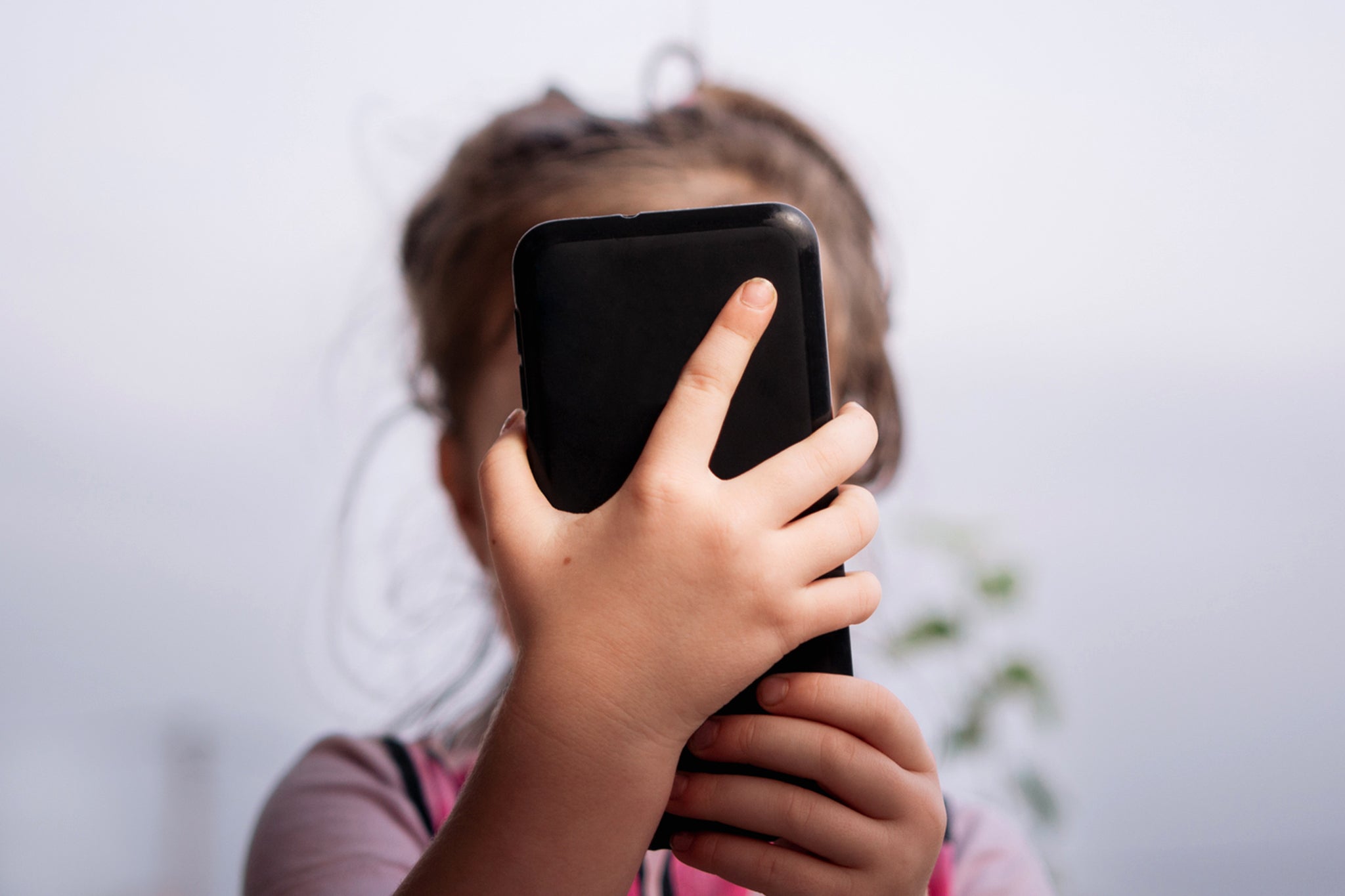Our kids can’t function without smartphones – it’s about time we banned them in schools
Is it any wonder that some kids are unable to look you in the eye or hold a conversation when they’re so reliant on their devices? asks Emma Reed


I felt a flicker of relief recently. After what has felt like a long time, the adults have started standing up to the stranglehold of the smartphone and the negative effect it’s having on young children.
In Hertfordshire, where I live, hundreds of parents have signed the Parent Pact, part of the Smartphone Free Childhood campaign, promising not to buy their children a smartphone until they are 14. Today, campaigners have sent an open letter to education secretary Bridget Phillipson, urging her to take action on the issue by placing restrictions on their use in schools.
Earlier this year, research from Ofcom revealed that 25 per cent of three to four-year-olds had a smartphone, and that 50 per cent of children under 13 are on social media. And just today, more than a dozen states and the District of Columbia have filed a lawsuit against the “dopamine-inducing” short-form video platform, TikTok, alleging it has “adverse mental health impacts on the users.”
Is it any wonder that children are starting school trying to swipe on a book, or that social media teaches new words over a dictionary? Hello, “mewing.”
I didn’t allow my children to have a smartphone until they moved to senior school – despite many in their class having them in primary. For my two boys, that was at 13, and for my daughter, 11. The difference I’ve seen in having a phone that bit earlier is palpable.
The eldest, as they tend to do, bore the brunt of a harsher regime. We didn’t give him a smartphone initially, but a small brick. Once we realised that this not only involved social death, but also intense frustration at the ancient method of jabbing at numbered keys to reply with a simple “yes”or “no,” we gave him one of our cast-off smartphones when we took advantage of a free upgrade.
The kids have never had a brand-new phone. They have our older models and admit that they give them everything they need, even if the battery drains down more quickly. They’re also aware, sadly, that brandishing the latest Apple iteration makes them an easy target for theft.
It’s interesting to see schools taking charge. At my son’s school, they’ve recently introduced the Yondr phone-locking pouch. At the start of the school day all pupils from first to fifth form put their phones in the pouch and lock them on the bases installed in the school. They return at the end of the day to unlock them.
This also means fifth-formers, who go off site into town for lunch have to pay with cash or a bank card. My son, who has narrowly escaped this by being in sixth form, thinks this a little harsh. It is draconian and it’s another thing for the staff to manage, but at least they don’t have to manage the disruption of phone use during lessons.
Research has shown more pupil engagement, increased academic success and genuine social interaction at break times. As parents, we are charged for the pouch (around £25) and if we don’t wish to buy a pouch, no phone is permitted to be brought into school at all. If parents need to contact their children, they can leave a message with the school reception as in the past. In my view, this also gives children a reprieve from a litany of nagging or anxious parental messages.
At my daughter’s school, phones are to be turned off and left in lockers during the school day, although I suspect there is some furtive checking during breaks and lunchtime.
I’m impressed by the way in which schools are taking the issue seriously, but it’s useless if we, as parents, don’t work with them. It feels like schools are increasingly relied upon to do it all: they take away the phones, bring in speakers to talk about porn and social media, as parents increasingly shy away from difficult conversations or conflict.
It’s not easy. I have many friends who’ve been subjected to a level of rage from their kids they’ve not seen before in attempting to set boundaries around phone use.
My rules are no phones at the table or at restaurants – or when we’re in company. Yet how can we effectively manage boundaries when we struggle to create them for ourselves?
One evening, my 14-year-old daughter came into my bedroom. “Remember to put your phone downstairs before you go to bed,” I said from my own bed, clutching my phone. The monumental hypocrisy of it wasn’t lost on me.
Where once we worried about kids eating too many sweets and the attendant sugar addiction (although that concern is still present), the small rectangle glued to their palms is infinitely more addictive, hitting them with jolts of dopamine.
By necessity, the pandemic made everyone more reliant on technology and even many adults admit that interacting in person again was difficult. At least though, we had developed those skills as children ourselves. Many children have not had a chance to get off the starting blocks.
I see for myself the kids who are unable to look you in the eye or hold a basic conversation. It’s common that friends text when they arrive at a house rather than ring the bell and risk an interaction with an adult. I was alarmed when I suggested to one of mine that they call the driving instructor to discuss available times. “What? Call them?”
As adults, we are just as in thrall to our smartphones – but at least our brains had chance to develop before they got to us.
It’s not the fault of the kids, although we moan about it. We’ve done this to them and we need to help them out. Parent is not just a noun; it’s also a verb.






Join our commenting forum
Join thought-provoking conversations, follow other Independent readers and see their replies
Comments